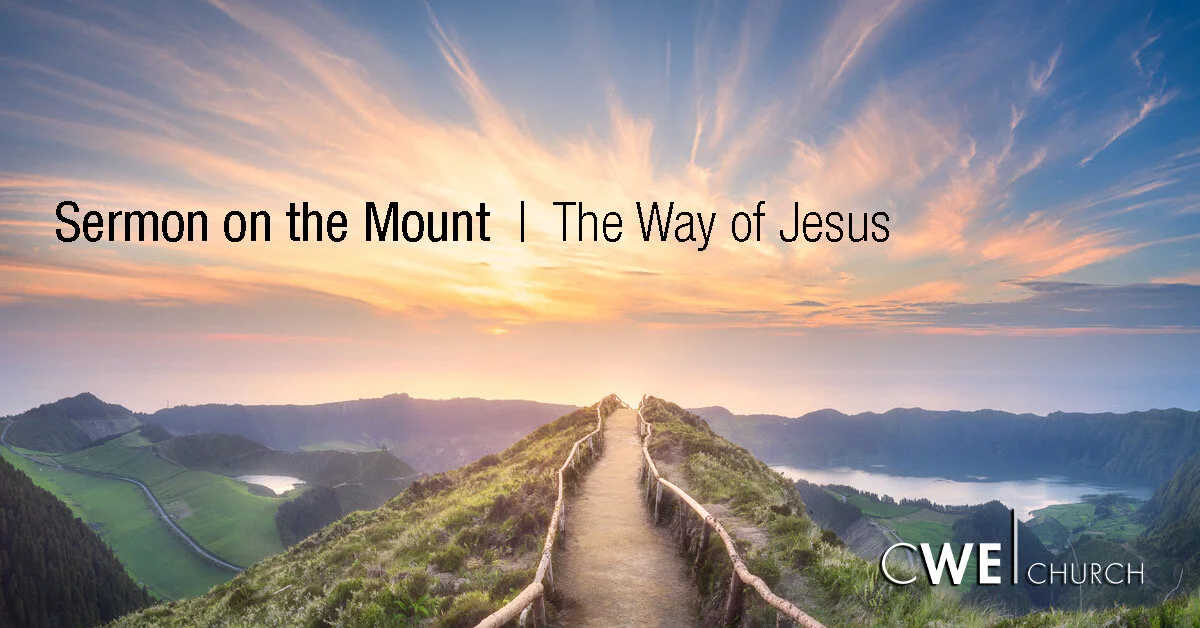What is the point and the power of prayer? Jesus shows us here in what is perhaps the most famous prayer of all time. This week we look at the first actual request in the prayer: Hallowed be your name.
At the very heart of Jesus’ picture of the transformed life is prayer. In the first line of this most famous of all prayers, Jesus shows us that if we want to know how to pray, we have to know to whom we pray.
Before Jesus shows us how to pray he tells us how not to pray. But this isn’t a formula. Very often we don’t even know what our deepest needs really are. Join us as Jesus reconnects us to the deepest needs of the human heart.
Jesus affirms many of the reasons many today are “done” with religion. But instead of telling people to go do their own thing, he says, “Follow me, I’ll show you a better way.” In this passage, Jesus shows us that authentic spirituality is bound up in something he calls righteousness.
“Love your enemies” is Jesus’ most unique teaching, and also his most difficult, painful, and offensive. And yet, the deeper we follow him into the pain of evil done to us, the more he leads us through it into a world of “perfect” love.
What do you do when you suffer personal insult or loss at the hands of someone else? Jesus’s answer sounds outlandish to us. But what if the way of Jesus is the true way of ultimate human flourishing?
Jesus is asking us to imagine a world where oaths are completely unnecessary because people are always completely true, and then to live as if we’re already dwelling in that world. He shows us how in this passage.
Sex and sexuality, marriage and divorce are not easy topics to engage with, irrespective of how we seek to address them. Jesus shows us that there are deeper issues at play when considering these matters. In his words of wisdom, we’re exposed to a deeper problem than we realize, and pointed to a satisfying love greater than we could ever hope for.
Many people (both religious and otherwise) feel instinctively that there is a higher life we should be living, and that it requires some kind of transformation to get there. Jesus affirmed this, and shows us that it begins by dealing with anger and contempt in our hearts. Our transformation begins with reconciliation.
As 2020 closes out we all need hope for a better tomorrow. The prophet Isaiah gives us a picture of a tomorrow that is not only better than 2020 has been, but better than we could ever imagine. It is a picture that holds hope for tomorrow and power for today. Join us as we conclude our sermon series: Jesus of the Prophets.
Justice is a huge topic in our culture, and hugely divisive. The politicization has damaged our ability to talk about justice and find real solutions. But if we're willing to look, the Bible gives us unique resources.
Modern culture is deeply committed to the idea of progress: that history is a story headed someplace good. But often, no matter how much progress we make, it feels like we’re stuck in a doom loop. This famous prophecy from Micah shows us how Jesus helps us in the midst of our stuck places
One of the biggest realities we are wrestling with this past year is the reality that we are not in control. We desperately want control over the world, yet are constantly crushed when our attempts fail. This is an admittedly bleak picture. But it is precisely into the bleakness of this reality that this passage about a coming King speaks most powerfully.
Many people are spiritually curious, but suspicious of traditional religion. How would Jesus speak into this? What is authentic spirituality? Jesus shows us in this passage, which is about his relationship to God’s word.
In the beatitudes, Jesus offers us an “aspirational identity.” The challenge is, much of it isn’t anything we would aspire to. Especially persecution. But what if Jesus sees more of reality than we do? What if persecution is part of a greater life, and a deeper joy, he offers?
We live in an incredibly distracted age (especially digital distractions), with many different things competing for our limited attention. Yet what we give our utmost attention to is deeply connected to the persons we become. How? Jesus shows us in the sixth beatitude.
















